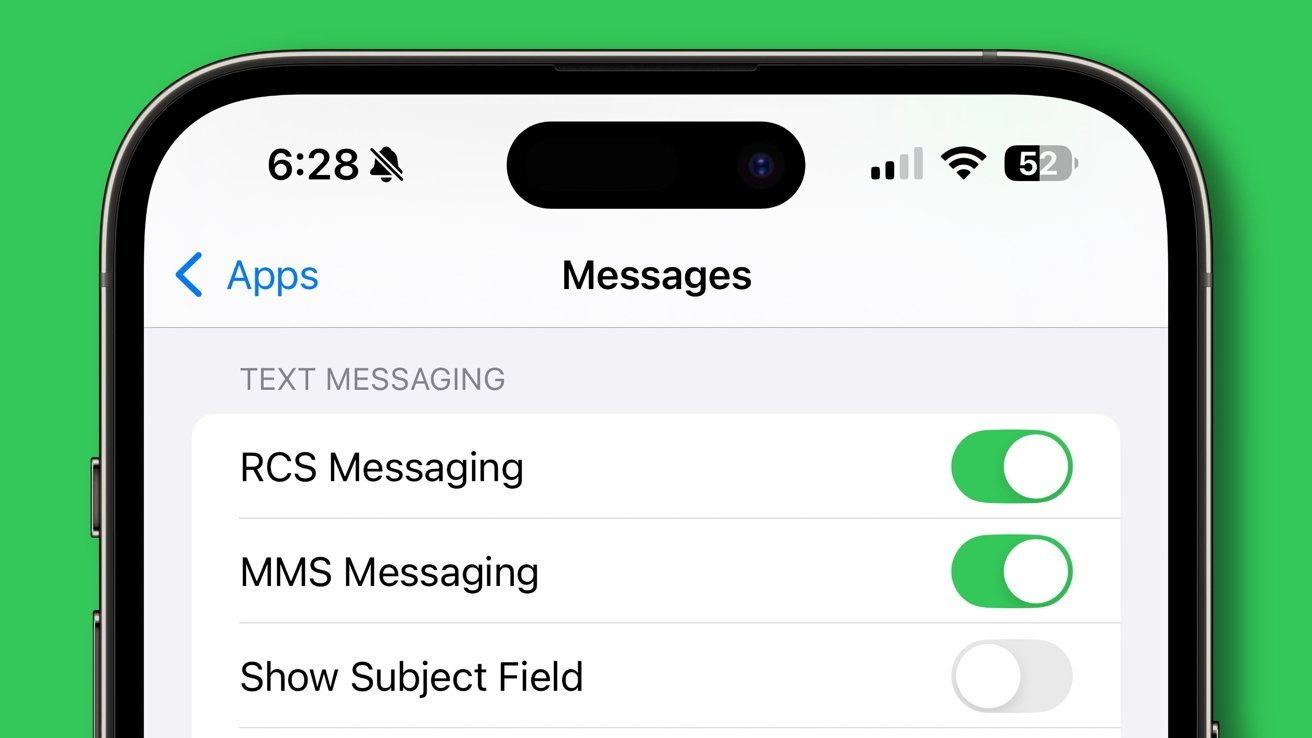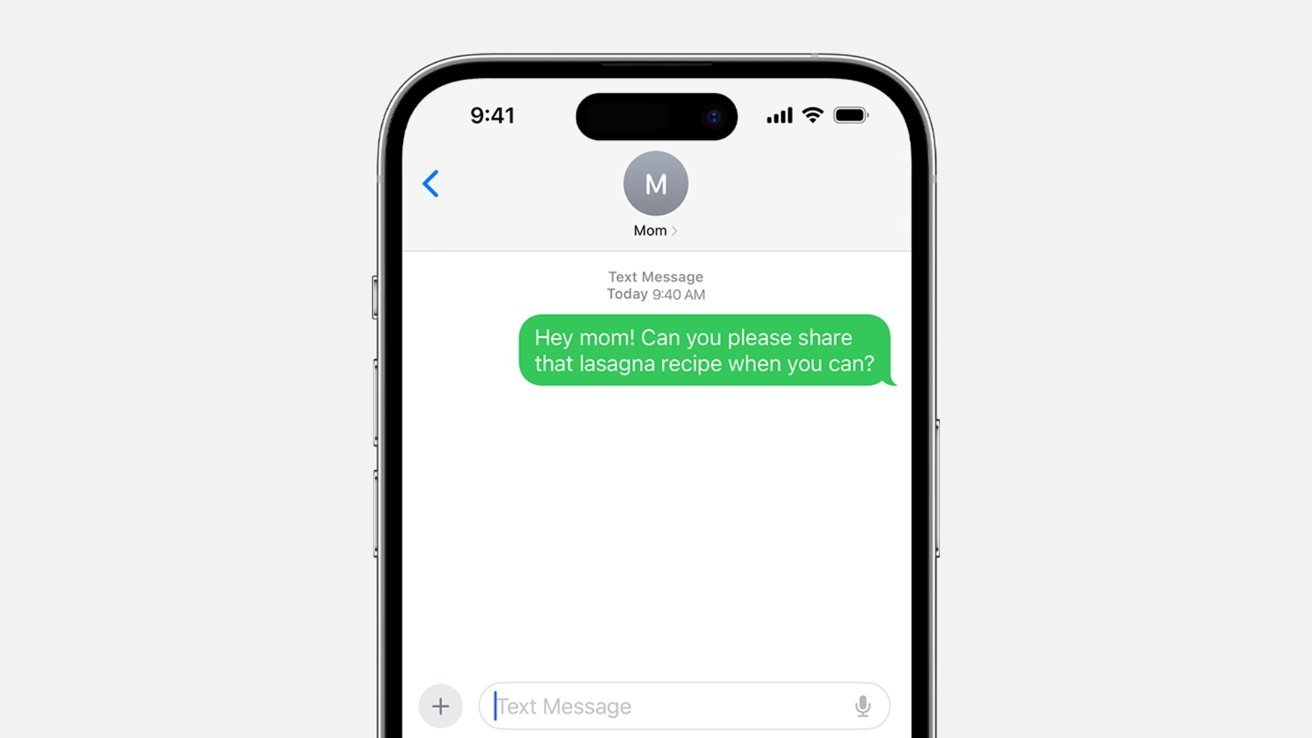
Apple’s adoption of the RCS protocol in iOS 18 has improved communications in iMessage between users of iPhones and Android, but some security issues remain. Apple and Google are working together to fix them.
Apple’s adoption of RCS in iOS 18 will not change the “green bubble” status of Android messages on iPhone, but behind the scenes the update has brought a number of improvements. Videos, GIFs, and photos sent in messages between the two platforms now retain their original quality level, for example.
iPhone users also now see when an Android user you’re in a chat with is typing, prior to their finished message appearing, and they will see the same when you’re typing. Read receipts and delivery notifications between platforms now work as they have done when chatting with iPhone users.
It’s also now seamless for both iPhone and Android users to add and manage participants in a group chat originated on either platform. Scheduling messages to Android device users the way you can to Apple users is still not possible — but Apple claims that is a problem with RCS.
Messages sent to other messaging apps or platforms previously also may have the caption “text message” to remind senders that the message was being sent to someone with an Android device — or an Apple user who had turned off iMessage capability for some reason. In iOS 18, the caption will be replaced with “RCS,” letting users know it is being sent on the new standard.
Some issues remain
That said, it’s not all green bubbles and blue bubbles dancing a field together just yet, as the Washington Post points out. Some problems remain that, for example, are not present in secure cross-platform third-party apps like WhatsApp or Signal, but Apple and Google say they are working together to solve these issues.
The biggest issue is the level of messaging security. When you chat or send attachments using iMessage to other Apple users, everything between the parties is end-to-end encrypted. This is not the case when sending messages to an Android user — and if there are any Android users in a group chat, nobody in the chat is end-to-end encrypted.
A much more minor problem reported in iOS 18 is that “stickers” sent in texts by Apple users disappear on Android phones after a few seconds. The ability to send a message to an Android user when using in-flight Wi-Fi or when the Wi-Fi connection is less than rock-solid doesn’t work properly.
Google, WhatsApp, Signal and other internet-based messaging apps allow for scheduling messages to users on both Apple and Android platforms, but iMessage currently only offers scheduled message delivery between Apple devices.
Apple could solve these issues by using security and other proprietary “add-ons” in iMessage the way others like WhatsApp, Signal, and Google do. Instead, Apple has opted to collaborate with Google on several initiatives to upgrade the RCS standard itself, and that work is already well underway.
On the plus side, this will ultimately result in a better RCS universal standard for all platforms and messaging apps, and bring iMessage “up to speed” with third-party messaging apps for cross-platform compatibility. The downside is that it will likely take longer for the Apple-Google security proposals to be adopted into RCS, since it has to go through a lengthy approval process.
Until then, Apple users who have lots of Android-using contacts may want to consider using WhatsApp or Signal, particularly in group chats, for better security and features that iMessage currently only offers Apple device owners. While the risk is generally considered low, group chats in iMessage with Android users are, for now, less secure and less private than they should be.

